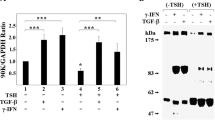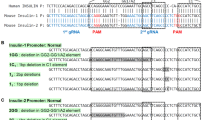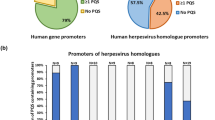Abstract
Human hepatitis B virus (HBV) is one of the causative agents of hepatocellular carcinoma (HCC). The virus encodes a 17 kDa protein, X, which is known to be a causative agent in the formation of HCC. An insulin-like growth factor-II (IGF-II) is expressed during the formation of HCC. Among the four promoters of the IGF-II gene, promoters 2, 3 and 4 become activated during the formation of HCC. The high frequency of detection of hepatitis B virus X (HBV-X) antigen in liver cells from patients with chronic hepatitis, cirrhosis, and liver cancer suggested that the expressions of HBV-X and IGF-II are associated. Studies were carried out to test the relationship between the HBV-X gene product and the activation of IGF-II promoter 4. We demonstrated that the HBV-X protein increases the endogenous IGF-II expression from promoter 3 and 4 of IGF-II gene. Analysis of the fourth promoter of IGF-II gene showed that the HBV-X gene product positively regulates transcription. Two copies of a motif are responsible for conferring HBV-X regulation on the fourth promoter of IGF-II. These motifs have been identified as Sp1 binding sites. Sp1 binding to IGF-II P4 promoter was identified by gel mobility shift assay using purified Sp1. By using a GAL4-Sp1 fusion protein it was demonstrated that HBV-X positively regulates the Sp1 mediated transcriptional activity of IGF-II in vivo. A protein-affinity chromatography experiment showed that HBV-X protein does not bind directly to Sp1, but HBV-X does augment the DNA binding activity of the phosphorylated form of Sp1 in HepG2 cells. Sp1 was phosphorylated by HBV-X and its DNA-binding activity was up-regulated upon HBV-X transfections. Various HBV-X mutant expression vectors were used for the demonstration of specific interactions between Sp1 and HBV-X. These results indicate that HBV-X functions as a positive regulator of transcription, and that Sp1 is a direct target for the transcriptional regulation of IGF-II. Increasing the DNA binding ability of the phosphorylated form of Sp1 by HBV-X might be an important mechanism for regulating the IGF-II gene expression and possibly promoting cell division during hepatic carcinogenesis. Our experimental results suggest that expression of HBV-X might induce the expression of IGF-II and the IGF-II might play a role in hepatitis B virus pathogenesis during the formation of HCC.
This is a preview of subscription content, access via your institution
Access options
Subscribe to this journal
Receive 50 print issues and online access
$259.00 per year
only $5.18 per issue
Buy this article
- Purchase on Springer Link
- Instant access to full article PDF
Prices may be subject to local taxes which are calculated during checkout
Similar content being viewed by others
Author information
Authors and Affiliations
Rights and permissions
About this article
Cite this article
Lee, Y., Lee, S., Lee, Y. et al. The human hepatitis B virus transactivator X gene product regulates Sp1 mediated transcription of an insulin-like growth factor II promoter 4. Oncogene 16, 2367–2380 (1998). https://doi.org/10.1038/sj.onc.1201760
Received:
Revised:
Accepted:
Published:
Issue Date:
DOI: https://doi.org/10.1038/sj.onc.1201760
Keywords
This article is cited by
-
HBx and HBs regulate RhoC expression by upregulating transcription factor Ets-1
Archives of Virology (2013)
-
Targeting insulin-like growth factor axis in hepatocellular carcinoma
Journal of Hematology & Oncology (2011)
-
Hepatitis B virus regulates Raf1 expression in HepG2.2.15 cells by enhancing its promoter activity
Archives of Virology (2011)
-
Hepatitis B virus X protein upregulates transcriptional activation of human telomerase reverse transcriptase
Virus Genes (2010)
-
Whole genome expression profiling of hepatitis B virus-transfected cell line reveals the potential targets of anti-HBV drugs
The Pharmacogenomics Journal (2008)



